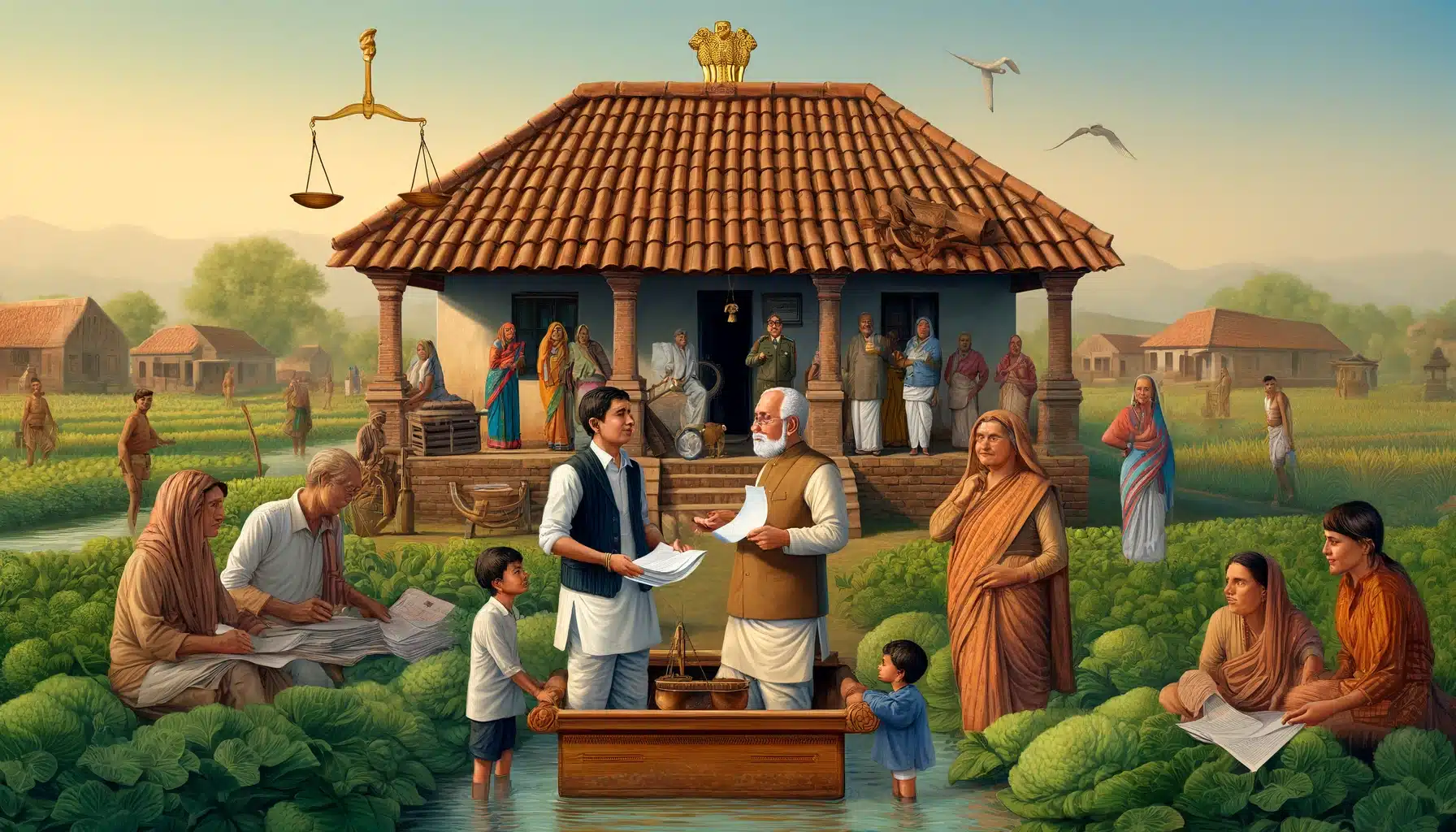In the case of Dev Kishan & Ors v. Ram Kishan and Ors, disputes arose over property transactions within a joint Hindu family. The plaintiffs challenged the validity of transactions conducted by the family’s manager, Madan Lal, who sold properties to Kishan Lal, alleging they were conducted without l

Citation: AIR 2002 Raj 370
Date of Judgment: 09th May, 2002
Court: Rajasthan High Court
Bench: S.K. Garg (J)
Facts
- Dev Kishan & Ors, in the present case, were the legal representatives of Kishan lal who expired during pendency of the case. Ram Kishan and Kailash were respondents No 1 & 2, in the present case (herein referred as plaintiffs).
- Madan Lal was the karta of the joint family of respondents and plaintiffs. The plaintiffs came to know, in January 1969, that Madan Lal had sold the two houses of the joint family, to Kishan Lal through registered sale deed for a consideration of Rs. 2000/- though the value of these two houses was about Rs. 16,000/- and not only this, Madan lal also got the signatures of other defendants on that sale deed by undue influence and the amount taken by the him after sale was not distributed to any other members of the family.
- It was alleged by the plaintiffs that Madan Lal was under the influence of Kishan Lal and thus, first mortgaged the properties for a consideration of Rs. 500 in 1962, second mortgage deed for a consideration of Rs. 900 in 1964, and in 1967, the sale deed was executed by the Kishan lal through Madan lal in his favour.
- It was contented by plaintiffs that there was no legal necessity for mortgaging as well as for selling the properties in question in favour of Madan lal and if properties were sold, it was for the illegal and immoral purposes, and for that the plaintiffs were not bound.
- Late Kishan Lal and his representatives alleged that Madan Lal took loan from him for the legal necessity of the family or that loan should be termed as antecedent debt and for that, the plaintiffs were bound to pay. The allegations of influence and immoral or illegal transactions were denied by Kishan Lal and, was further averred that from the mortgage deed it was clear that the properties in question were mortgaged by Madan Lal in favor of Kishan Lal for the purpose of marrying his minor daughters. Hence, all the transactions were for legal necessity.
Decision of the Munsiff
The learned Munsiff held that the loan taken by Madan Lal from Kishan Lal cannot be termed as loan for payment of antecedent debt as the loan taken by Madan Lal was for the purposes of marrying his minor daughters. Also, if taken into account that the mortgage was in consideration of loan for marriage, it was a void transaction as it was opposed to public policy in view of, Child Marriage Restraint Act 1929.
It further held that the sale deed was executed on the marriage day so as to signify that the consideration was utilized in the marriage. But the court vehemently held that the amount was not utilized in the marriage. Therefore, the legal necessity was not at all viable. It also held that the properties worth Rs. 7000-8000/- would be mortgaged for a consideration of Rs. 400-500/-on the pretext of marrying minor daughters, when other brothers and mother of minor daughters were earning members.
Decision of the Civil Judge
The learned Civil Judge upheld the judgment & decree passed by the learned Munsiff in favour of the plaintiffs and, against Kishan lal. The court reiterated that the debt was opposed to public policy of Child Marriage Restraint Act 1929 & placed emphasis upon the ruling of Orissa High Court in the case of Maheswar Das & Ors v. Sakhi Dei[1] and Parasram & Ors v. Naraini Devi & Ors[2].
Decision of the Rajasthan High Court
The High Court of Rajasthan confirmed the findings of the learned Civil Judge & of the learned Munsiff.
Key legal issues discussed
1. Whether the debt taken by a major member of the family for the marriage of a minor member is a debt for legal necessity?
No
The High Court of Rajasthan stressed upon the case of Rambhau Ganjaram v. Rajaram Laxman & Ors[3] in which the Bombay High Court held that where the marriage of the minor was performed in violation of the provisions of Child Marriage Restraint Act of 1929, the debt, having been incurred by the de facto guardian for purposes which were not lawful, the alienation effected for purposes of satisfying those debts cannot be regarded as a lawful alienation binding upon the minors.
Also, in the case of Maheswar Das v. Sakhi Dei[4], the Orissa High Court held that where the consideration under sale deed was for marriage expenses of minor girl (under age of 14), the sale was a void transaction being opposed to public policy.
It was well noted in the present case that the amount obtained through mortgage was neither spent on the marriage of the minors nor on the welfare of the family.
2. Whether the debt was an antecedent debt & was binding upon the minors of the joint Hindu Family?
No
“Antecedent debt” means antecedent in fact as well as in time, that is to say, that the debt must be truly independent of and not part of the transaction impeached. A borrowing made on the occasion of the grant of a mortgage is not an antecedent debt. The father of a joint Hindu family may sell or mortgage the joint family property including the son’s interest therein to discharge a debt contracted by him for his own personal benefit, and such alienation binds the sons provided:
- the debt was antecedent to the alienation, and
- it was not incurred for an immoral purpose.
Court cited the case of Panmull Lodha v. R. B. Gadhmull Lodha[5], wherein the Calcutta High court had observed that the Court should not facilitate conduct, which the Legislature has made penal as being socially injurious, merely on the ground that the parties agree to perform it at a place where the performance of such marriage is not punishable by the law of the place. More so when the minor’s estate is in the hands of the receiver appointed by the Court and an application is made on behalf of the minor for the sanction of expenditure for the marriage of his minor sister with a minor boy, the Court should not sanction such expenditure for facilitating the child marriage within the meaning of Child Marriage Restraint Act 1929.
Also, in the Rambhau Ganjaram case, court stressed that the alienation effected for purposes of satisfying debts which were not legal necessity cannot be regarded as lawful alienation binding upon the minors.
Therefore, in the present case, the debt taken by Madan Lal was not an antecedent debt because the properties were not mortgaged or sold for the purpose of discharging a debt contracted by Madan Lal for his own personal benefit, but for the purposes of marrying his minor children and since the loan was taken by him was for the purposes of marriage, which was opposed to the policy of restraining child marriages under the Act of 1929, the transactions cannot be regarded as transactions for payment of antecedent debt and non-binding upon the minors.
3.Whether the sale deed was void per se or voidable at the option of the minors or other coparceners?
Voidable
Court observed that a loan incurred which was not out of legal necessity and not utilized for the welfare of family and is also against the interest of the plaintiffs which renders the sale deed void. It referred to Faqir Chand v. Sardarni Harnam Kaur[6], where it was held that mortgage of Joint family property by father as manager for discharging his debt not for legal necessity or for payment of antecedent debt, his son was entitled to impeach mortgage even after mortgagee has obtained preliminary or final decree against his father.
In the present case, both courts below had come to the conclusion that the transactions were not for legal necessity and not for payment of antecedent debt, therefore, plaintiffs were entitled to challenge the sale deed in toto.
Also, of the fact, that the sale deed has been executed when children were minors, no doubt the sale was not per se void, but became voidable as soon as the option was exercised by the minors through their guardian. Thus, an alienation by the Manager of a joint family made without legal necessity and family welfare is not void, but voidable at the option of the other coparceners.
[1] AIR 1978 GAU 84.
[2] AIR 1972 All 357.
[3] AIR 1956 Bom 250.
[4] AIR 1978 GAU 84.
[5] AIR 1937 Cal 257.
[6] AIR 1967 SC 727.



